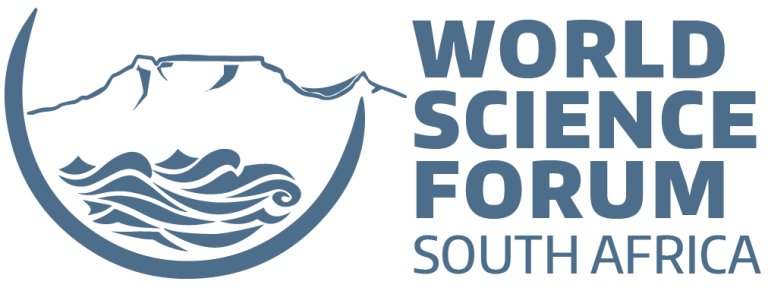



“As Chief Scientist of Québec and President of the International Network of Governmental Science Advice (INGSA), I believe it is important to support science journalism as a foundation of a sound global science forum. Well informed and well-trained media promote and encourage transparency and accountability of decision makers across the world.” says Prof. Rémi Quirion, “I am really proud that through the generosity of the Fonds de recherche du Québec and the Department of Science & Innovation of the government of South Africa (DSI), we have been able to sponsor up to twenty World Science Forum (WSF) 2022, Media for Social Justice Fellowships.
This process has been steered by the World Federation of Science Journalists (WFSJ) and we are all very happy with this new partnership. I am looking forward to meeting each and every one of them at a reception we are hosting on 4 December in Cape Town to present them to WSF delegates. As scientists and speakers, it is all too rare to see hard-working and award-winning journalists being put out front and center at our conferences. Together with the WFSJ, we hope to make this a new trend. You, media and science communicators, might need us for your work, but we need you too for ours and together we should promote, celebrate and if necessary, fight for more attention and funding for science journalism trainings worldwide.”
Science Forum South Africa 2022 is being merged with the World Science Forum 2022 and will move to Cape Town with a ceiling of 2000 invited delegates. It will, like previous editions, serve as an open, public platform to debate the science and society interface. Leading scientists, researchers, young researchers, journalists, business people, entrepreneurs and innovators, policy makers, science and technology communicators and the general public will ignite conversations about science. They will discuss new discoveries and debate the direction that research is taking in the sciences, humanities and social sciences.
Speakers and panelists are distinguished and carefully chosen thought-leaders from around the world, drawn from science, academia, government, policy and industry. Whereas the sub-theme and focus running through previous SFSA’s has been on pan-African developments and how they interlink with global trends, the focus of the World Science Forum this December will be global.

“We know as conference organisers that there is perhaps ten-times more work involved in liaising with an individual journalist or an association in the run up to a conference, when compared with simply registering delegates or even facilitating speakers. Perhaps not everybody sees that the media group and the media programme and the side-visits are the lifeblood of any successful event. It is such hard work, but it is so worth doing. You literally bring our thoughts and words and ground-breaking research to the world way beyond the confines of the small meeting room or the large plenary hall. And we genuinely appreciate it.” says Daan de Toit, Deputy Director-General: International Cooperation and Resources, Department of Science and Innovation,”

Meeting VIP scientists aside, you might not always fully appreciate how delegates see you as ‘stars in their eyes’. When a school kid in the expo area recognises a media badge or a TV camera or when a young scientist hears your question in a packed room, their eyes and ears do literally light up. You have immense impact on people’s lives beyond your stories. That is why when the Government of Québec offered to fund an open global call to bring media & communicators to WSF Cape Town, we were happy to partner in the costs. I know from my own team how much work has gone into it, especially at the WFSJ HQ.
As individual members of the World Federation, you should be proud at how they are representing you in our science diplomacy circles. We are equally very committed to strengthening science journalism within South Africa and abroad whenever we can. You can count on us, for example, to be present at your World Conference of Science Journalists in Medellín, Colombia, next March, like we were previously in Doha, San Francisco etc. I would only ask that you take some time-out to look at our terrific WSF programme, to see what might interest you, to get in touch if you need anything, and above all, to promote science from the ‘global south’. By simply quoting more scientists from our region, by simply asking and insisting on access to more data from our region, by visiting the ever-increasing infrastructures being built in our region, you too can help move the dial for social justice”.
Science for Social Justice: On the Road to the World Science Forum, Cape Town, 6 – 9 December, 2022
